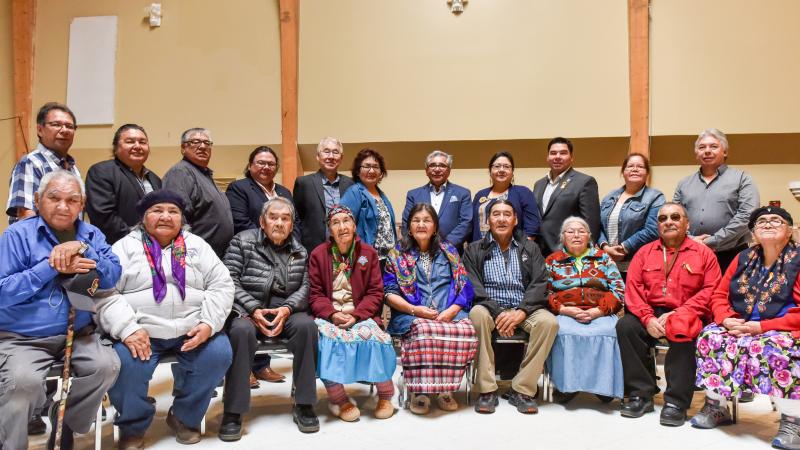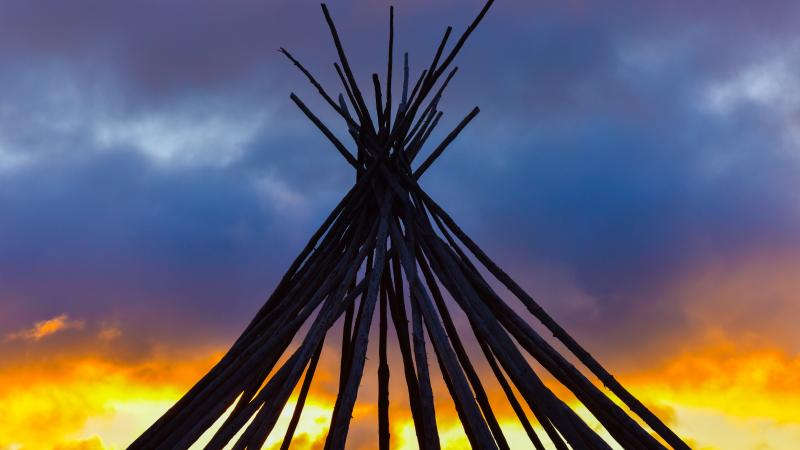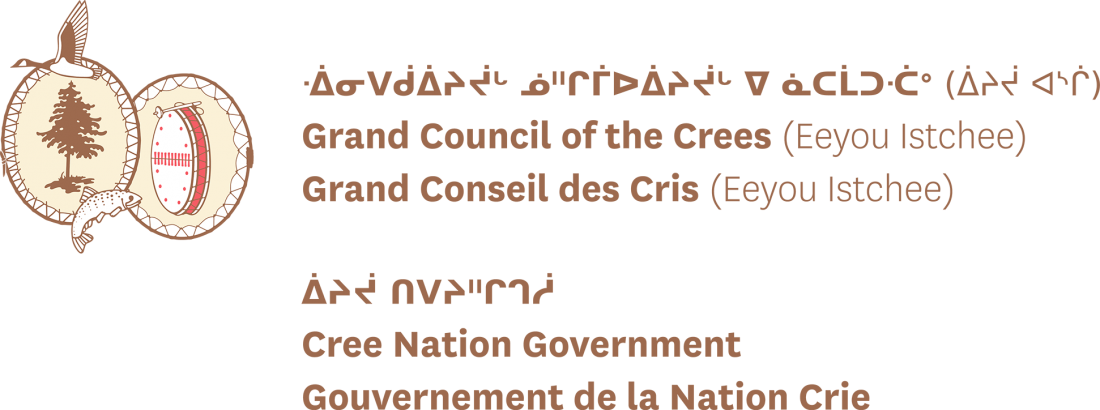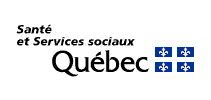Bella M. Petawabano delivers welcoming remarks at Cree Regional Suicide Prevention Conference in Waswanipi
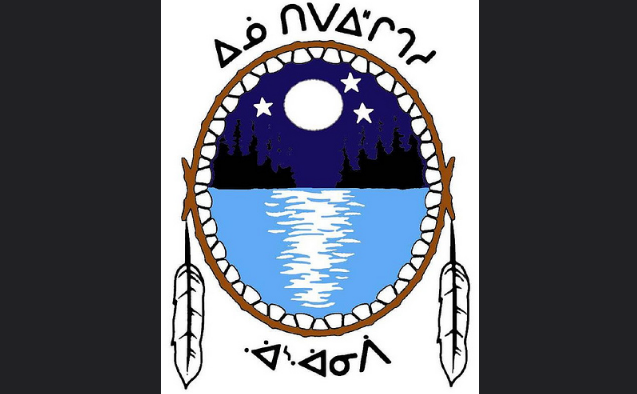
Bella Moses Petawabano, Chairperson of the Cree Board of Health and Social Services of James Bay, delivered the following welcoming remarks to Naakitiwaayititaau Pimaatisiiun – Let’s Take Care of Life: The First Cree Regional Suicide Prevention Conference, held in Waswanipi, Quebec, February 20-23, 2017.
---
"Good morning Chief Marcel Happyjack and Deputy Chief Mandy Gull; Waswanipi Eenouch, Elders, and Erika Eagle and her team and everyone else who worked in organizing this conference.
Welcome to Naakitiwaayititaau Pimaatisiiun – Let’s Take Care of Life: the First Cree Regional Suicide Prevention Conference.
I am Bella Moses Petawabano, Chair of the Cree Board of Health and Social Services of James Bay, and I am honoured to be here with you as we address the critical challenges in supporting people in distress in Eeyou Istchee.
Over the coming days we face the challenge of developing holistic approaches to address social distress before it leads to crises involving emergency medical and police calls and sometimes, unfortunately, untimely death. When people in our communities are living with distress, we are all affected. We all know someone who is experiencing or has experienced despair and dark thoughts. But this problem does not just belong to that person: it is our community’s problem, and it demands the engagement of the Cree Nation as a whole.
When someone takes his or her own life, we lose that person and all that person’s unique qualities. And we also lose each of the unique relationships between that person and others. Those relationships are irrevocably severed. Afterwards, those untimely broken relationships become scars that we live with, not unlike the intergenerational trauma we know about from our residential school experiences.
Let’s think about how everyone in this room is affected by the distress of our young people. We are Eeyouch. When someone harms him or herself, or another person who is either a close relative or friend from childhood, we all suffer this loss in our relations. If we stop to draw the linkages, each of us has some connection, whether close or distant, through our immediate families or through marriages, to the people involved in these events and their families. My point here is to stress that the dark thoughts of individual young people in Eeyou Istchee are having a cumulative effect on all our social relations as Eeyouch. These dark thoughts harm all of us in our own families and in our Nation.
We are attending this gathering to face a painful fact: too many of our young people are living in deep distress. We are somewhat fortunate: we do not lose many loved ones to self-harm. But we cannot rest easy, because many of our youth are living with dark thoughts which lead them to harm either themselves or others. We know this is happening because of the extremely high rates of suicide attempts and assaults in our communities.
One pattern among young men is that while some harm themselves, many more are either being injured in assaults or they are the perpetrators harming others. And don’t forget that those harmed and being harmed are close relations. How do these events harm future relations within that family and community? Among young women, more than we might expect are also involved in assaults – either as victims or perpetrators. But, alarmingly, an extremely high number of our young women harm themselves each year. This is not a new pattern – but consider its impact on our Eeyou Nation. These young women are or will soon become mothers of the next generation. How can they impart the important life lessons their children will need when they themselves are living with such distress? What is needed to help them find the path to chiyaameihtamuun in their close relations and families?
Why are so many of our young people living day-to-day in the context of ekaa chihkaawaateyihtaakuhch and suffering dark thoughts about themselves and their futures? I believe we have to come to a collective awareness that their individual distress is our problem. If you agree with me, then our task here becomes urgent: we must find new ways to “Take care of life,” as the title of this gathering tells us.
Our challenge is to find ways to intervene – both over the short term, in intervention and post-vention programs helping those people immediately at risk, and over the long term, in prevention strategies that address the difficulties that lead people into endless dark thoughts about themselves and their futures.
The Cree Health Board’s new Strategic Regional Plan identifies suicide prevention as a priority. The Strategic Regional Plan has its roots in the Regional Health Conference held last April in Waskaganish, where we asked all participants, representing communities and entities across Eeyou Istchee, to identify what they felt must to be addressed by the Cree Health Board in the coming years. Promoting mental health and well-being was one of the most important concerns identified, and this involves, of course, the full range of strategies for suicide prevention, intervention and post-vention. We are addressing this concern in several ways. For instance, we are currently developing an efficient and comprehensive mental health network, and aim to place in each community a mental health team that includes mental health nurses, community workers, and psychologists.
In addition, the use of traditional Cree healing methods, including land-based healing programs and healing lodges, are also important priorities in the Strategic Regional Plan, and will be critical in shaping holistic suicide prevention, intervention and post-vention strategies. Our Nishiiyuu Miyupimaatisiiun program, working closely with the Council of Chishaayiyuu – our elders council – is developing initiatives that will draw on traditional Cree knowledge and values to support healing programs. These will complement the community mental health teams, and are part of our ongoing exploration of ways to bring traditional Cree medicine and healing into a conversation with western medical knowledge to provide culturally safe and competent care that expresses our Cree history, culture and values.
But healing, while essential, is reactive, and we also must be proactive. We must encourage and support holistic lifestyles that are in harmony with our families and communities, with the heritage gifted to us by our ancestors, and with the land that has nourished us for countless generations. Our goal must be to find ways to support our people’s physical, mental, emotional and spiritual health.
To help meet this important objective, the Cree Health Board’s Iiyuu Ahtaawin Miyupimaatisiiun Planning program is supporting the creation and operation of Community Miyupimaatisiiun Committees, which will identify priorities and approaches to nurture miyupimaatisiiun in each community. Each committee is independent of the Cree Health Board, and works with the local Band Council and other entities in identifying its community’s needs, and in designing approaches to best meet these needs. This program aims to develop long-term, sustainable plans to shape a culture of miyupimaatisiiun and chiyaameihtamuun across Eeyou Istchee, and is an important part of the foundation upon which we can build a strong, healthy Nation.
Bringing miyupimaatisiiun and chiyaameihtamuun to our communities is not the sole responsibility of the any one entity – nor can it be. This task requires a coordinated and sustained effort from the Cree Health Board, the Cree School Board, the Cree Women of Eeyou Istchee Association, the Cree Youth Council, the Cree Justice Department, local Band Councils, the Cree Nation Government, and other entities, working alongside one another. Only by sharing this load and finding ways to effectively harness our tremendous resources can we succeed in bringing miyupimaatisiiun to Eeyou Istchee, conquering the despair that leads too many of our people to live with dark thoughts.
In closing, I want to acknowledge and praise our front-line workers, the organizers of this conference and for your continuous work, dedication, and commitment to ensure the safety of all people in Eeyou Istchee. Many people appreciate the work you do.
I wish you success in the activities, workshops and discussions in this gathering. You are charged with a very important task, and I thank you for the knowledge, energy and expertise you will be sharing with one another, and, ultimately, bringing back to our communities, to address this most important challenge."
